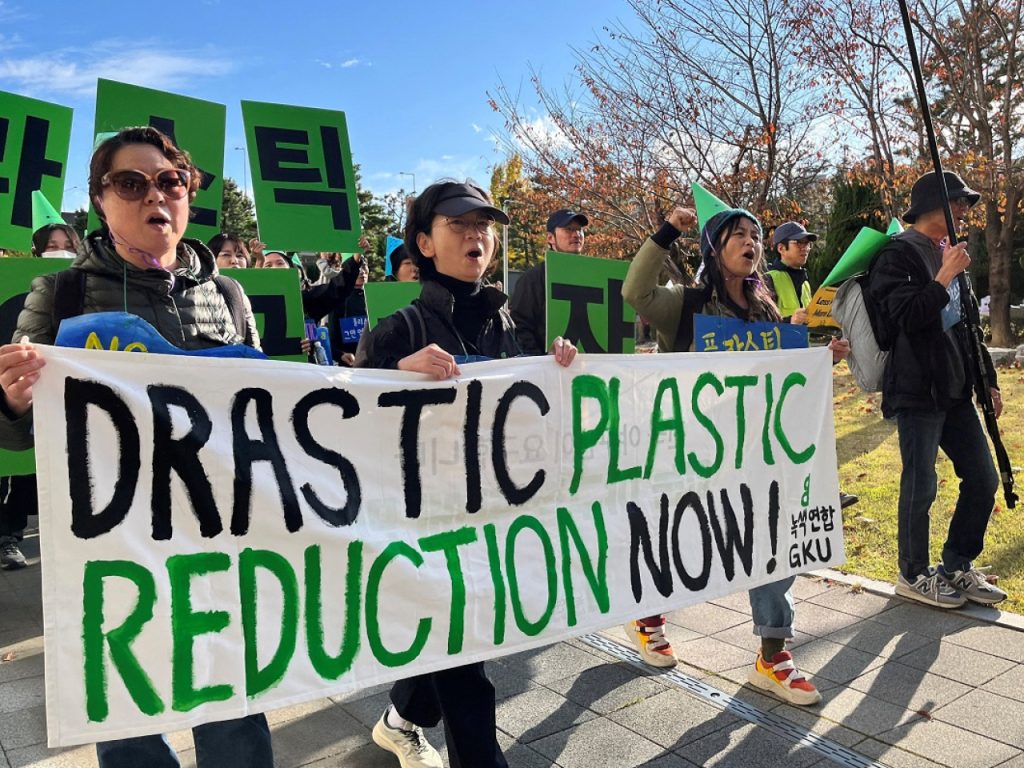Negotiations for a landmark global treaty to curb plastic pollution face a critical impasse in South Korea, as dozens of nations accuse a small group of oil-producing countries of obstructing progress.
Delegates from nearly 200 countries in Busan are grappling with key issues, including setting targets to reduce plastic production and phasing out harmful chemicals. While most support these measures, nations like Saudi Arabia and Russia insist the treaty should focus solely on waste management and resist binding global commitments.
French Energy Minister Olga Givernet expressed frustration, stating that finding an agreement on an ambitious treaty remains an absolute priority.

With plastic production projected to triple by 2060 and over 90% of plastic currently unrecycled, the urgency for a robust agreement is clear. However, the latest draft treaty remains contentious, with a promised update repeatedly delayed.
Countries like Rwanda and Fiji have openly criticised the obstruction, calling for ambitious measures to address the crisis. Meanwhile, some delegates, including Mexico and Germany, advocate for continued consensus-building over polarizing votes, warning against alienating key nations.
The Busan talks are scheduled to conclude imminently, but with divisions persisting, the possibility of extending discussions looms. Environmental groups and observers remain concerned that a weak treaty would fail to address the escalating global plastic crisis.


